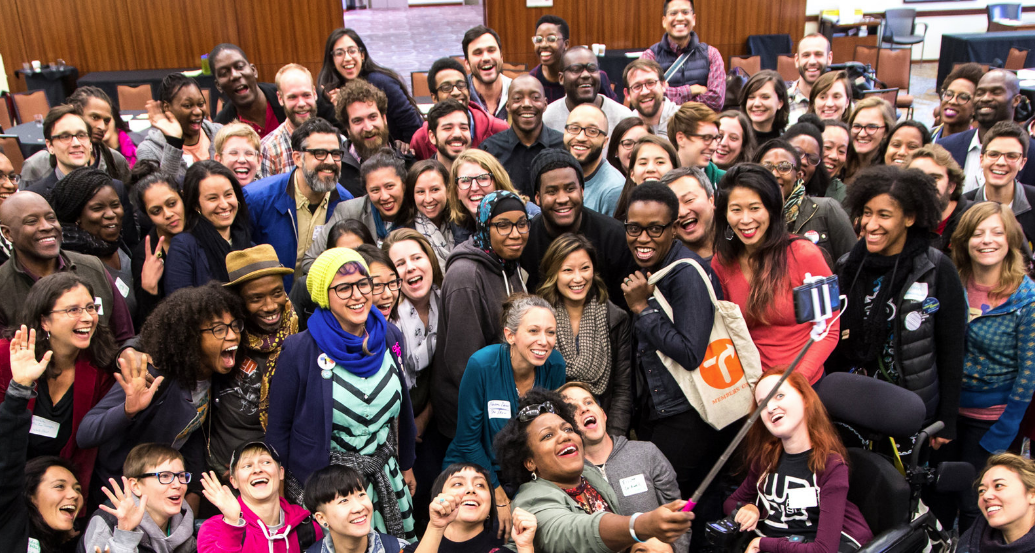In response to the coronavirus pandemic, the Untokening network convened a virtual conversation, in collaboration with Pueblo Planning, to share reflections and outline recommendations for mobility justice in the COVID-19 world. Much of the discussion stems from the network's Principles of Mobility Justice. Streetsblog is reposting the discussion as an op-ed.
Freedom of movement is at the core of our vision, but the crisis calls for us to be critical when thinking about what that means. Freedom is, at base, about having the ability to make choices in our lives. Freedom of movement in the current context means having the choice not to move at all and being able to work from home. We are facing unique challenges, but what is not unique is that the most marginalized have the least choice to stay safe at home and are more likely to have a precarious safety net in weathering this moment.
The most marginalized find themselves on the front-lines stocking our grocery shelves, delivering goods, driving our buses, picking our food, caring for the sick, and making supplies in prisons — among many other roles throughout our country. It is critical to center their lives and ask how we can make their movement safer, whether on public transit or at their jobs. Mobility justice requires that we hold the lives and the work of our black, indigenous and people of color front-line workers and communities as sacred, rather than sacrificial. It means keeping them from unnecessary harm and exposure to risk while they perform essential duties upon which society relies. Mobility justice cannot exist in a world where economic justice and workers’ rights do not exist — and these inequities are even more glaring now.
#MobilityJusticeCOVID19 pic.twitter.com/eBHCTUQswg
— The Untokening (@untokening) April 13, 2020
As we grapple with public-safety and health concerns in our communities, we envision a world beyond policing. For some people, walking outside has never been safe and this moment further amplifies that fact. We envision street safety for the people who must expose themselves to feed their families. We envision mobility justice for those behind bars but within the pandemic’s reach. In a time of crisis, the immobility of imprisonment does nothing to ease the trauma and pain in our communities.
Our interconnectedness shows the way forward toward healing and protecting our communities. As we face uncertainties and fear, we must refrain from seeing each other as moving threats. Collectivism is the only way we will survive this moment, which we are being shown by mutual aid efforts throughout the country and countless other ways people are supporting and uplifting each other. As we take on the sacred responsibility of remaining physically distant, we can continue to build together from afar. We can continue to center community care and everyday joys that nurture us, such as cooking, gardening, and connecting with our loved ones. We can feed the relationships that went unnoticed in the hustle of our overtime lives. We can imagine new systems in which our liberated communities move for themselves instead of being stuck in oppressive systems that endanger their lives.
Those of us with the privilege to choose physical immobility must protect and uplift those in our communities who are continuing to be mobile. Mobility justice calls for us to see our lives as interdependent with the movement of all other people and to honor their stories and histories. Being rooted in a vision for mobility justice in this moment means embracing the collective responsibility that we all have to keep each other safe and to see mobility and immobility as an integral part of that responsibility.
Mobility Justice Responses to COVID-19
- Do not plan future projects at a time when equitable public participation is impossible.
- Redirect mobility planning staff to meet essential needs for vulnerable communities.
- Support the organizing efforts of exploited delivery and mobility workers.
- Provide safety supplies for frontline workers and/or contractors. This applies to all mobility and service delivery providers, public and private.
- Make public transit and para-transit free.
- Center those most in need in any transportation improvements and connect them with services such as food distribution and medical care. Access to mental health care is essential.
- Define street safety in a way that centers the most oppressed and vulnerable groups.
- Policing is not a tool for healing our divided communities, and official street closures usually involve police. These are not a solution for equitable street safety in communities of color.
- Stop police harassment of delivery workers doing vital work — and ticketing people surviving by living in vehicles or on the street.
- Support efforts to release those immobilized in jails and detention centers.
- Direct public funding to community bicycle shops that can distribute vehicles and provide repair at a neighborhood level.
- Support neighborhood-based mobility employment at locally owned companies.
- Join mutual aid networks to keep neighborhoods strong.
The Untokening (@untokening) is a multiracial collective that centers the lived experiences of marginalized communities to address mobility justice and equity.






